A streamlined procurement process is vital in making supply chains work successfully. In today’s fast-paced landscape, the only way to have proper procurement management is by implementing technology such as AI, cloud-based tech, and IoT (Internet of Things).
Aratum leverages the three cutting-edge solutions to make your company resilient and unswayed by uncontrollable procurement disruptions, and to improve business efficiency and profitability.
Supplier Management
Sourcing Strategy
Negotiation and Contract Management
Purchase Requisition and Order Processing
Supplier Performance Evaluation
Risk Management
Compliance and Ethical Procurement Practices
Inventory Management
Cost Management and Cost Reduction
Supplier Collaboration and Relationship Management
Procurement supplier management involves identifying, evaluating, and managing suppliers to ensure the availability of quality goods and services at competitive prices.
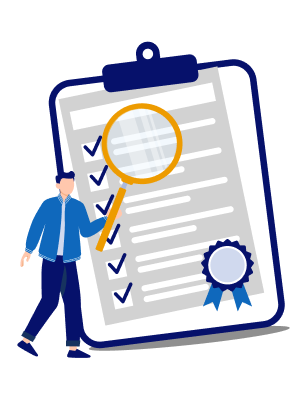
Developing a sourcing strategy involves analyzing market trends, assessing supplier capabilities, and determining the most cost-effective and reliable sources for procurement needs.

Negotiating favorable terms and conditions with suppliers and managing contracts effectively are crucial aspects of procurement to ensure compliance, minimize risks, and optimize value.

Procurement includes creating and processing purchase requisitions, converting them into purchase orders, and managing the procurement cycle from requisition to receipt of goods or services.
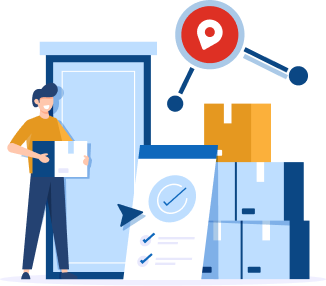
Monitoring and evaluating supplier performance based on key performance indicators (KPIs) such as quality, delivery timeliness, and cost-effectiveness to drive continuous improvement and maintain supplier relationships.
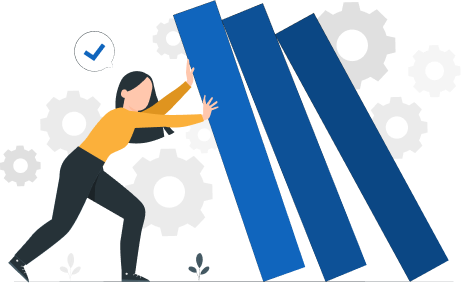
Identifying and mitigating potential risks such as supply chain disruptions, geopolitical issues, or supplier financial instability to ensure business continuity and resilience in procurement operations.
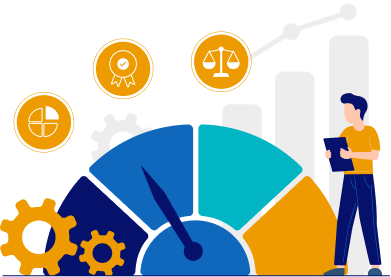
Ensuring compliance with regulatory requirements, industry standards, and ethical practices such as fair labor conditions and environmental sustainability in procurement processes.

Managing inventory levels effectively balances supply and demand, minimizes stockouts, reduces carrying costs, and optimizes working capital.
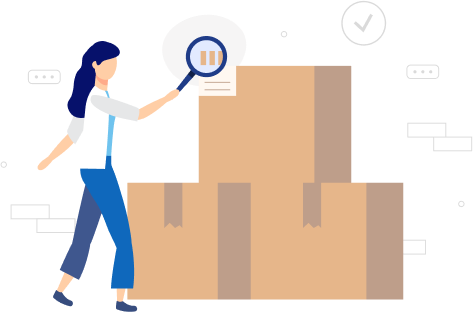
Implement cost-effective procurement management strategies, negotiate competitive pricing, and seek cost reduction and optimization opportunities across the procurement lifecycle.

Cultivating strong relationships with suppliers through effective communication, collaboration, and mutual value creation to foster long-term partnerships and achieve strategic objectives.

In healthcare procurement, the focus is on sourcing medical supplies, negotiating contracts, and managing vendor relationships to ensure the availability of quality products, optimize costs, and effectively support patient care.
Retail procurement management focuses on sourcing products from suppliers, negotiating contracts, and managing inventory to meet customer demand while optimizing costs and maintaining product quality.
In pharmaceutical supply chain procurement, the focus is on medication sourcing, contract negotiation, and vendor relationship management to ensure the availability of safe and effective drugs, optimize costs, and comply with regulatory requirements.
In e-commerce procurement, the focus is on sourcing products from suppliers, negotiating pricing, and managing inventory to fulfill customer orders efficiently and cost-effectively.
Logistics procurement involves sourcing services, selecting carriers, and negotiating rates to optimize efficiency and minimize costs. Effective procurement ensures timely delivery, reduces transit times, and enhances overall supply chain performance.
Cold chain procurement focuses on sourcing temperature-controlled storage facilities, specialized packaging, and reliable transportation services to maintain product integrity throughout the supply chain.
Finance procurement focuses on sourcing financial services, negotiating contracts, and managing vendor relationships to optimize costs, streamline operations, and ensure regulatory compliance.
Government procurement focuses on sourcing goods and services, awarding contracts, and managing supplier relationships to meet public sector needs efficiently, transparently, and in compliance with regulations.
Manufacturing procurement is about sourcing materials, negotiating contracts, and managing inventory to ensure smooth production processes. Effective procurement optimizes costs, maintains quality, and keeps production on schedule.
Procurement in cybersecurity involves sourcing and acquiring technologies, services, and solutions to protect against cyber threats and vulnerabilities.
In dangerous goods warehousing, procurement management entails sourcing specialized equipment, safety gear, and compliance services to ensure the safe handling and storage of hazardous materials.

Water and energy procurement focuses on sourcing resources, negotiating contracts, and managing suppliers to ensure reliable supply, optimize costs, and efficiently meet sustainability goals.

Improvement in procurement costs and supplier relationship
A manufacturing company in Thailand struggled with unreliable suppliers and challenges in sourcing raw materials, leading to production delays and quality issues. Manual procurement processes resulted in inefficiencies and limited visibility into supplier performance.
With Aratum’s help, the company implemented a cloud-based, AI-powered supply chain procurement management software to improve its operations.
Procurement is the process of acquiring goods, services, or works from external sources to fulfill organizational needs.
The key stages of the procurement process typically include identifying needs, supplier selection, negotiating contracts, purchase order creation, receipt of goods or services, and payment processing.
Effective procurement can lead to cost savings, improved quality, increased efficiency, reduced risk, enhanced supplier relationships, and better compliance with regulations.
Selecting the right suppliers involves evaluating factors such as price, quality, reliability, reputation, financial stability, and compliance with standards or regulations.
Strategic procurement involves aligning activities with organizational goals and objectives, leveraging market intelligence, and adopting innovative approaches to achieve competitive advantages.
Procurement can contribute to sustainability by sourcing environmentally friendly products, selecting suppliers with sustainable practices, reducing waste, and promoting social responsibility throughout the supply chain.
Risks associated with procurement include supplier failure, quality issues, price fluctuations, supply chain disruptions, regulatory non-compliance, and ethical concerns.
Contract management involves overseeing the execution of contracts, ensuring compliance with terms and conditions, managing amendments or disputes, and maximizing value from supplier relationships.
AI and cloud-based technology enhance procurement processes by automating tasks, optimizing decision-making with data analytics, and improving collaboration with suppliers, leading to greater efficiency and strategic insights.
Procurement involves the entire process of acquiring goods or services, including supplier selection, negotiation, and contract management, while purchasing specifically refers to buying goods or services.
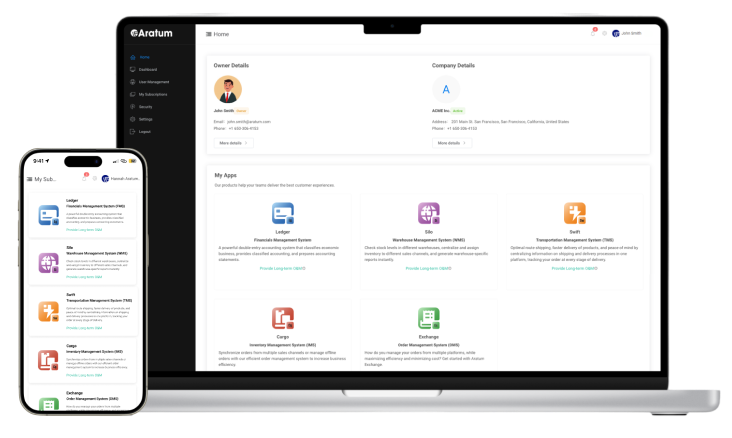
To implement proper procurement management in your business, you can rely on Aratum’s AI and cloud-based solutions to help you get started and gain business visibility, efficiency, and resiliency.
Aratum is a globally recognized software provider specializing in developing supply chain management solutions. Our software solutions incorporate advanced algorithms and optimized data structures to facilitate efficient data processing and information dissemination across organizations.
Leveraging cutting-edge technologies such as machine learning and artificial intelligence, the software enables automated decision-making and real-time analytics, enhancing supply chain visibility and improving overall performance.
With a focus on delivering robust and scalable solutions, Aratum is committed to providing our clients with the tools necessary to optimize their supply chain operations and gain a competitive edge in your respective markets.












© 2024 Aratum or an Aratum affiliate company. All rights reserved. No part of this publication may be reproduced or transmitted in any form or for any purpose without the express permission of Aratum or an Aratum affiliate company. The information contained herein may be changed without prior notice. Some software products marketed by Aratum and its distributors contain proprietary software components of other software vendors. National product specifications may vary. These materials are provided by Aratum or an Aratum affiliate company for informational purposes only, without representation or warranty of any kind, and Aratum or its affiliated companies shall not be liable for errors or omissions with respect to the materials. The only warranties for Aratum or Aratum affiliate company products and services are those that are set forth in the express warranty statements accompanying such products and services, if any. Nothing herein should be construed as constituting an additional warranty. In particular, Aratum or its affiliated companies have no obligation to pursue any course of business outlined in this document or any related presentation, or to develop or release any functionality mentioned therein. This document, or any related presentation, and Aratum’s or its affiliated companies’ strategy and possible future developments, products, and/or platforms, directions, and functionality are all subject to change and may be changed by Aratum or its affiliated companies at any time for any reason without notice. The information in this document is not a commitment, promise, or legal obligation to deliver any material, code, or functionality. All forward-looking statements are subject to various risks and uncertainties that could cause actual results to differ materially from expectations. Readers are cautioned not to place undue reliance on these forward-looking statements, and they should not be relied upon in making purchasing decisions. Aratum and other Aratum products and services mentioned herein as well as their respective logos are trademarks or registered trademarks of Aratum (or an Aratum affiliate company) globally. All other product and service names mentioned are the trademarks of their respective companies. See aratum.com for additional trademark information and notices.